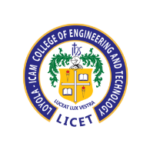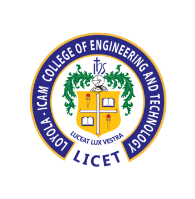Mechanical Engineering
value added courses
The department of mechanical engineering offers the following value-added courses to the students to enhance their practical knowledge.
Geometric dimensioning and tolerancing by department of mechanical
3D printing by department of mechanical
Six Sigma Course Certification

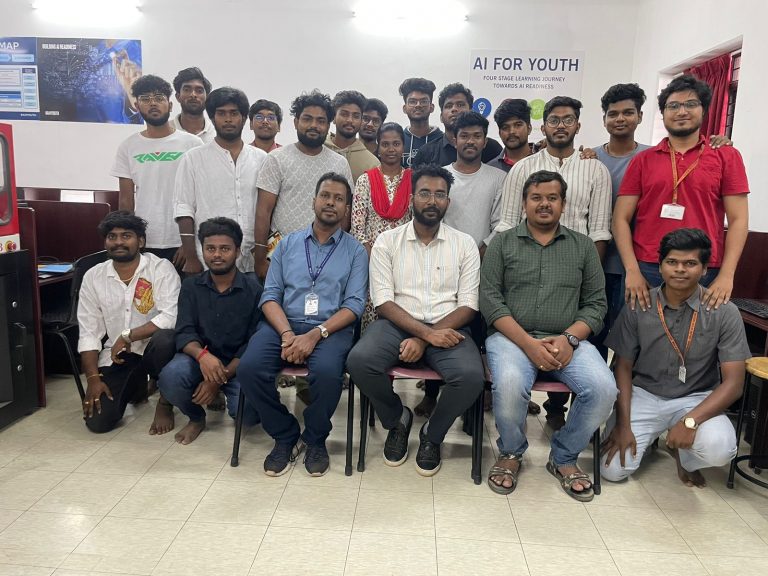
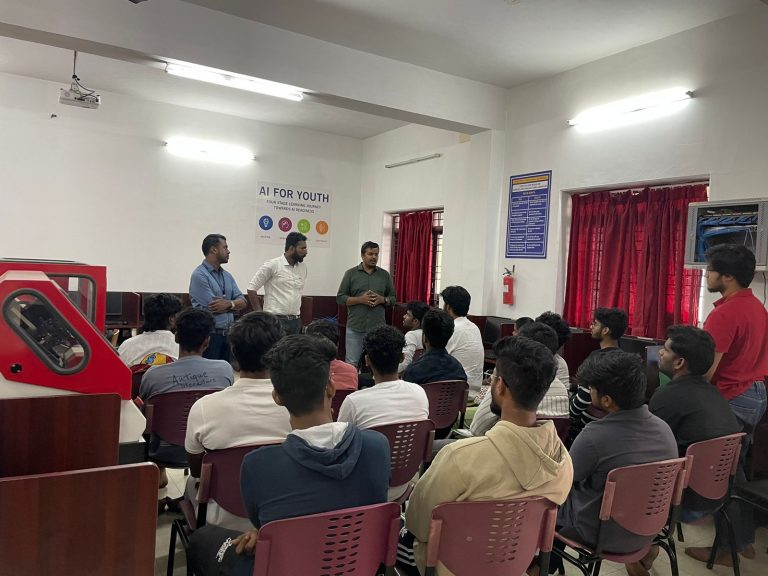
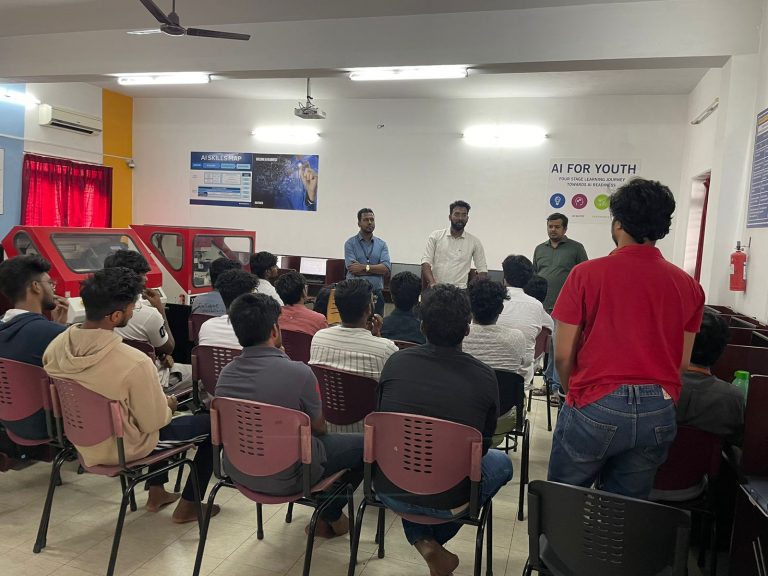
HVAC Design for Commercial Buildings
Hands-On Training
System discovery
In the Department of Mechanical Engineering, students are instructed on the operational principles of Gearbox systems through experiential learning methodologies.
System Analysis
Through this immersive approach, students gain valuable insight into the practical aspects of mechanical engineering and develop essential skills for real-world problem-solving.
Mini-project
Experiential learning on automobile
Club Activities
BAJA
SAE
GO KART DESIGN & RACING
Drone - AUTONOMOUS DRONE DEVELOPEMENT(ADDC)
SAE
Drone - AeroTHAN
SAE
BYCYLCE DESIGN COMPETITION
SAE
ELECTRIC TWO WHEELER DESIGN
SAE
Membership

IIW Students Chapter - LICET Students Chapter

Society of automotive engineers - (sAE)

ISHRAE Chennai -lICET student chapter
Disruptive Pathway to Learning & Research
World class teaching demonstration by professors to instill interest in the subtle concepts of mechanical engineering.
Weekly endowment research talks by professors to promote authentic research in the department of mechanical engineering.
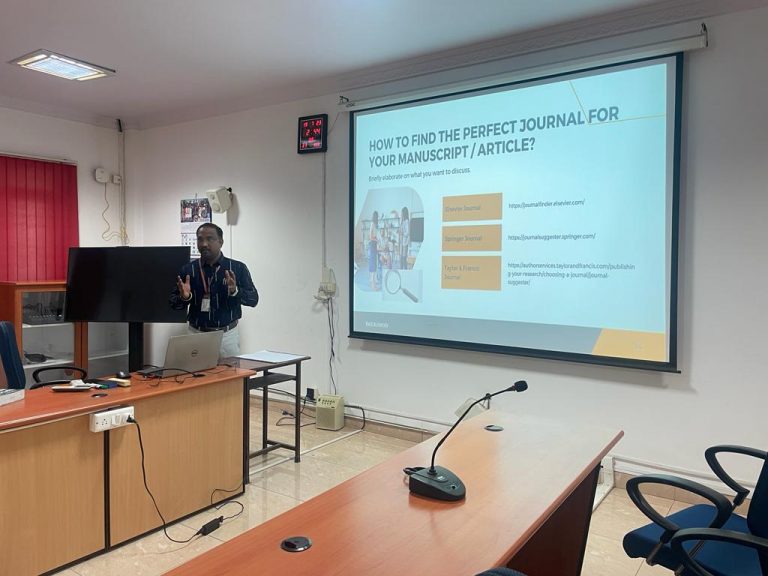
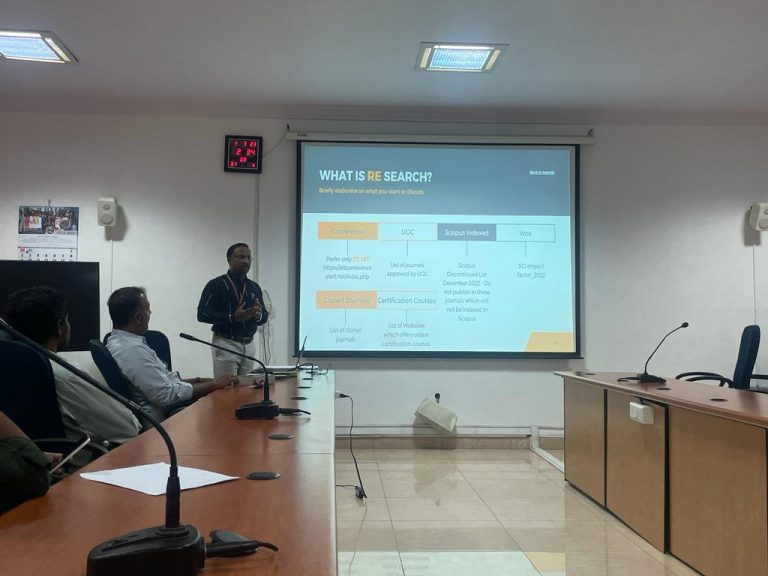
Dr. GK. Sathish Kumar, a distinguished professor renowned for his world-class expertise in materials science and engineering, has revolutionized the understanding and identification of brittle and ductile materials through his exceptional teaching methodologies. With a profound emphasis on visual inspection techniques, Professor Kumar imparts invaluable insights into discerning the distinctive characteristics of these materials, enabling students to develop a keen eye for identifying their properties.
Utilizing his extensive knowledge and experience, Professor Kumar delves into the intricacies of standard test methods, notably ASTM D 638, 790, and 695, which focus on determining the tensile properties of plastics. Through hands-on demonstrations and comprehensive explanations, he elucidates the significance of these methods in assessing material behavior under tensile stress, equipping students with practical skills essential for research and industrial applications.
Moreover, Professor Kumar’s expertise extends to the utilization of advanced analytical tools such as the Scanning Electron Microscope (SEM) coupled with Energy-dispersive X-ray Spectra (EDS). By integrating theoretical principles with practical demonstrations, he navigates students through the intricacies of SEM-EDS analysis, empowering them to explore the microstructural features and elemental compositions of materials with unparalleled precision and accuracy.
Through Professor GK Sathish Kumar’s unparalleled guidance and mentorship, students are not only equipped with theoretical knowledge but also foster a profound understanding of real-world applications. His commitment to excellence in teaching underscores his dedication to nurturing the next generation of materials scientists and engineers, ensuring their readiness to tackle the complex challenges of the modern world.
Disruptive Pathway to Learning & Research
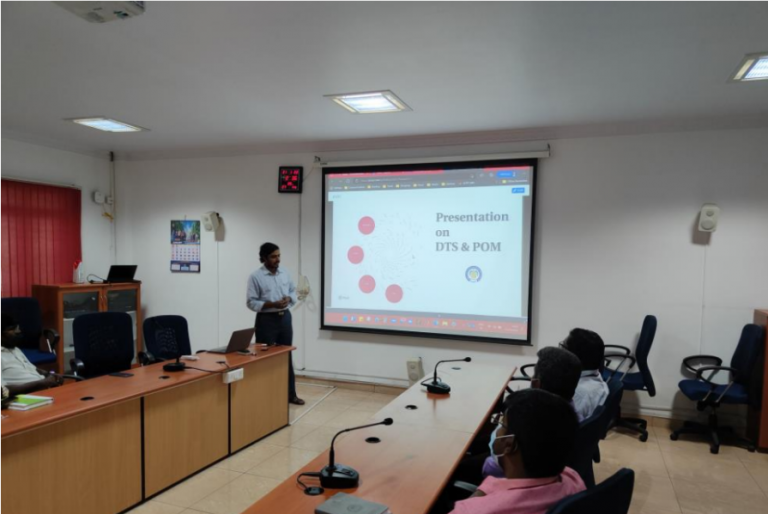

Mr.Chandrasekhar .P an esteemed professor renowned for his world-class teaching, has pioneered innovative methodologies in topics such as Spur Gear Design using Microsoft Excel. With his expertise, students gain hands-on experience in leveraging Excel’s functionalities to model and analyze intricate gear designs, fostering a deeper understanding of mechanical engineering principles.
Additionally, Professor Chandrasekhar employs dynamic presentation tools like Prezi to elucidate design explanations with unparalleled clarity. Through captivating visualizations and interactive storytelling, students engage deeply with the subject matter, enhancing comprehension and retention of complex concepts.
Furthermore, his case study on Employee Training utilizing Google Forms exemplifies his commitment to incorporating modern technologies into the learning process. By leveraging the versatility of Google Forms, Professor Chandrasekhar facilitates data collection and analysis, offering students practical insights into optimizing training programs for organizational effectiveness.
Through Professor Chandrasekhar P’s exemplary teaching methodologies, students not only acquire theoretical knowledge but also develop practical skills essential for success in today’s dynamic engineering landscape. His dedication to innovation and excellence sets a benchmark for transformative education, empowering students to become proficient problem solvers and industry leaders.
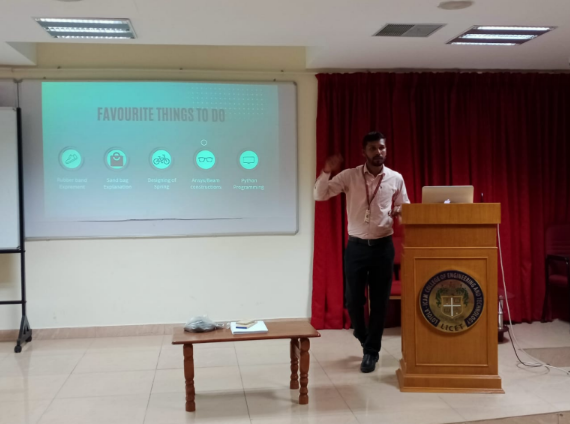
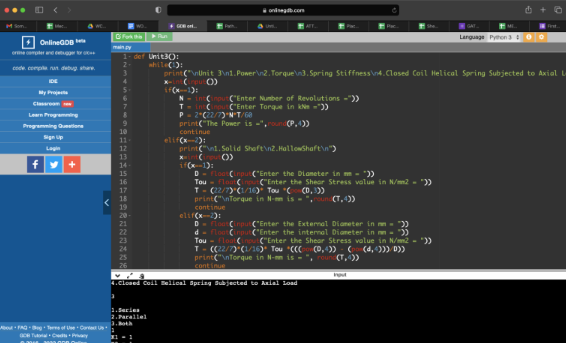
Mr. L Ezhil Ruban stands as a beacon of excellence in the realm of engineering education, renowned for his profound expertise and innovative teaching methodologies. With meticulous attention to detail, he has curated a diverse toolkit tailored to each topic, ensuring unparalleled learning experiences for his students.
For instance, when elucidating the complexities of Stress-Strain Curve analysis, he seamlessly integrates digital visualization tools like Canva with a hands-on rubber band demonstration. This approach not only demystifies abstract concepts but also fosters a deeper understanding of material behavior under different loads.
In exploring Types of Loads, Professor Ruban’s ingenuity shines through as he utilizes tangible props such as sandbags, transforming theoretical discussions into tangible experiences. Through this interactive method, students grasp the nuances of various load types, laying a solid foundation for structural analysis.
His proficiency extends beyond traditional teaching methods to include modern engineering software. Using Excel, he elucidates the distribution of shear forces, providing students with practical insights into structural mechanics. Similarly, in tackling deflection in beams, he leverages Ansys, offering students hands-on experience in analyzing complex structural deformations.
Professor Ruban’s dedication to comprehensive learning experiences is further evident in his approach to torsion in springs. Through practical demonstrations of coil spring preparation, he bridges the gap between theory and practice, empowering students to apply theoretical concepts to real-world engineering scenarios.
Moreover, recognizing the importance of computational skills in modern engineering, Professor Ruban integrates Python Programming into his curriculum for calculations across all units. This forward-thinking approach equips students with the essential tools for data analysis, modeling, and simulation, ensuring their readiness for the challenges of tomorrow’s engineering landscape.
Under the guidance of Faculty member L Ezhil Ruban, students not only acquire theoretical knowledge but also cultivate critical thinking skills, practical insights, and computational proficiency essential for their success in the dynamic field of engineering.
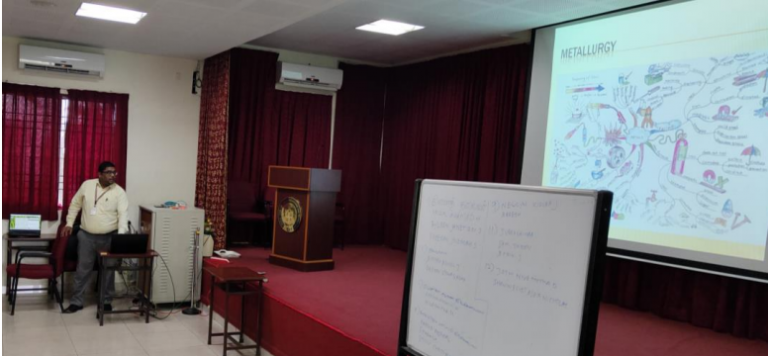
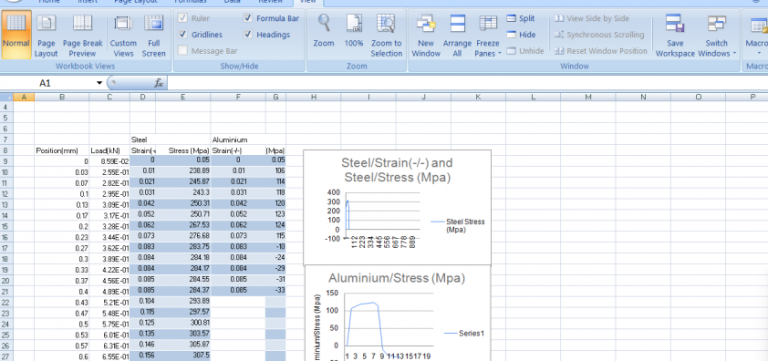
Dr. D. Antony Prabu, an esteemed educator renowned for his world-class teaching, has consistently demonstrated excellence in delivering comprehensive lessons on various topics, including Grain Size Measuring Techniques. With meticulous attention to detail, Dr. Prabu utilizes an array of cutting-edge tools such as Ms Paint, Image J, Ms Excel, and Ms Powerpoint to facilitate hands-on learning experiences for his students. Through practical demonstrations and interactive sessions, he navigates students through the complexities of the Line Intercept Method, enabling them to accurately analyze grain structures in diverse materials.
Furthermore, Dr. Prabu’s expertise extends beyond conventional teaching methodologies to delivering captivating introductions to Materials and their Applications. Through dynamic lectures enriched with real-world examples and case studies, he elucidates fundamental concepts, showcasing the intrinsic relationship between material properties and their myriad applications across industries. Dr. Prabu’s passion for instilling a deep understanding of materials science fosters a learning environment where students are inspired to explore the boundless possibilities of innovative materials and their impact on technological advancements. Under his mentorship, students not only acquire theoretical knowledge but also develop critical thinking skills and practical insights that are invaluable for their academic and professional growth
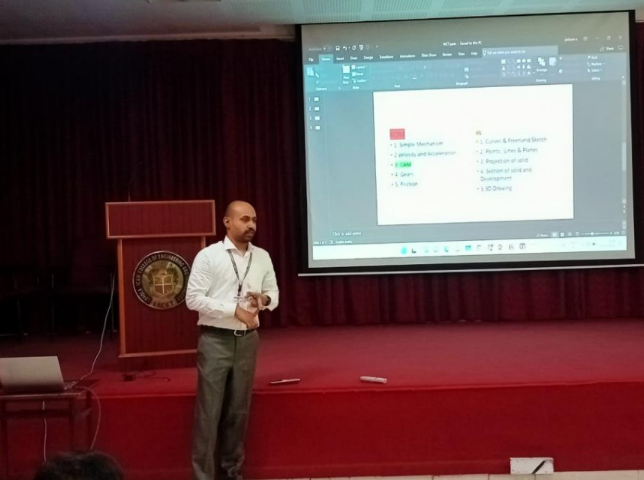
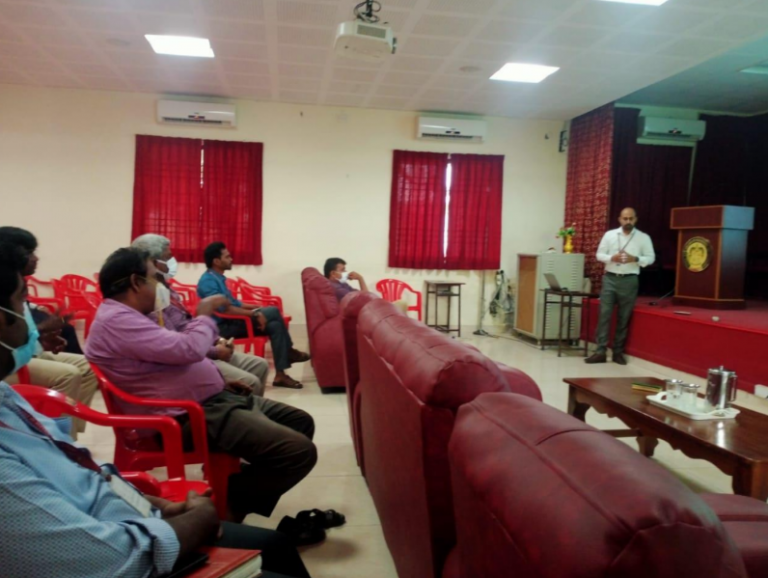
Mr.Jackson Irudhayam S, an esteemed educator in the field of engineering, is renowned for his world-class teaching methodologies, exemplified by his innovative use of advanced tools. Through the integration of cutting-edge technology, Professor Irudhayam facilitates comprehensive learning experiences for his students.
Using a Mechanical Analyser, Professor Irudhayam immerses students in the intricacies of simple mechanisms, providing hands-on exploration of fundamental mechanical principles. With Solidworks and Mechanical Analyser, he guides students in creating displacement diagrams, enabling them to visualize and analyze motion dynamics with precision and clarity.
Moreover, Professor Irudhayam’s expertise extends to CAM profile development and CAM & Follower animation, where students utilize the same sophisticated tools to explore complex mechanical systems. Through interactive demonstrations and practical exercises, students gain invaluable insights into the design and operation of cam mechanisms, preparing them for real-world engineering challenges.
Under Professor Jackson Irudhayam S’s guidance, students not only acquire theoretical knowledge but also develop practical skills essential for success in the dynamic field of engineering. His commitment to excellence and innovation sets a benchmark for transformative education, empowering students to become proficient problem solvers and industry leaders.
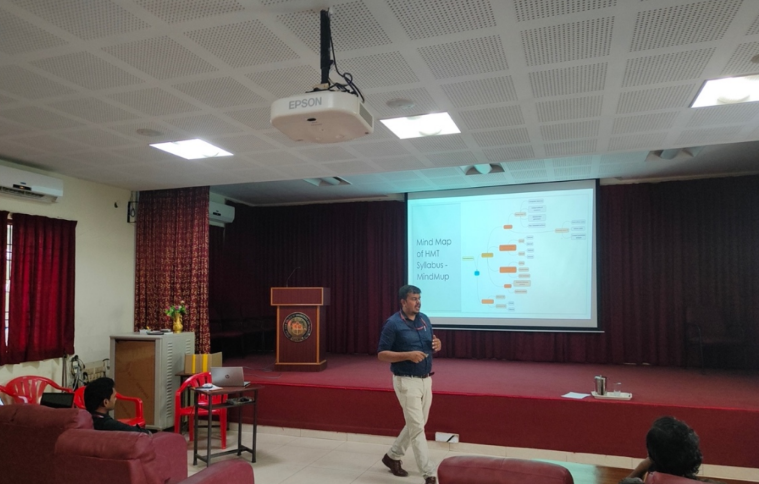
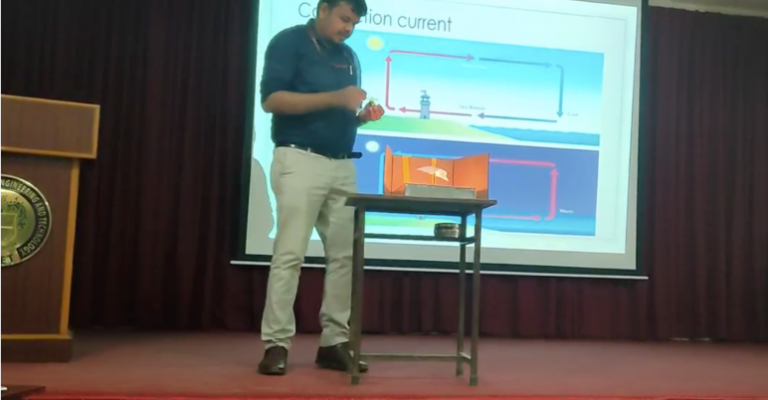
Mr. James Deepak D, a distinguished educator, has garnered acclaim for his exemplary teaching methods in various engineering topics. Through innovative approaches, he employs cutting-edge tools tailored to each subject, enriching student learning experiences.
For instance, in Conduction studies involving composite slabs and plane slabs/cylinders, Mr. James Deepak D harnesses the power of Python programming. By leveraging this versatile language, students gain hands-on experience in modeling heat transfer phenomena, enhancing their understanding of complex thermal dynamics.
In the realm of Convection, Mr. James Deepak D brings concepts to life through engaging experiment demonstrations. Through practical applications, students witness firsthand the principles of convective heat transfer, fostering a deeper appreciation for the subject matter.
Moreover, across all units, Mr. James Deepak D employs innovative tools such as Mind Mapping and Kahoot Quiz. These interactive methods not only aid in conceptual comprehension but also promote active engagement and retention of key principles.
Furthermore, Mr. James Deepak D goes a step further by introducing Qheat, an Android App designed to facilitate learning across all units. With this intuitive application, students have access to comprehensive resources and interactive exercises, enhancing their learning experience beyond the classroom.
Under the guidance of Mr. James Deepak D, students not only acquire theoretical knowledge but also develop practical skills essential for success in the field of engineering. His commitment to excellence and innovative teaching methodologies sets a benchmark for transformative education.
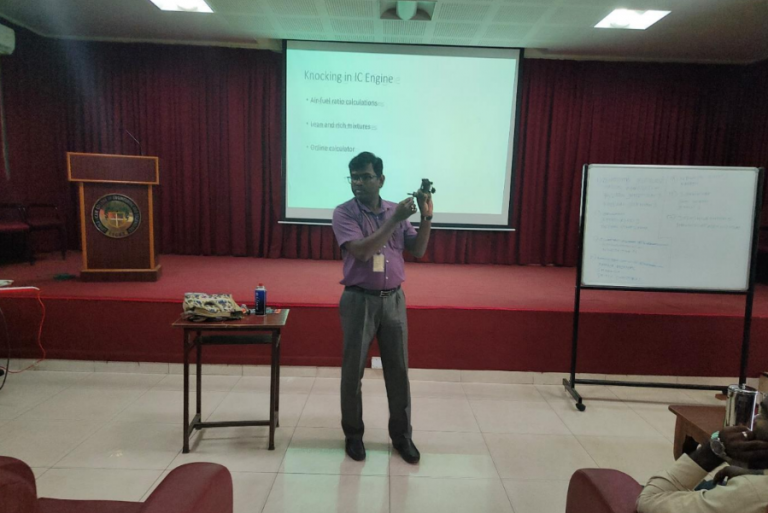
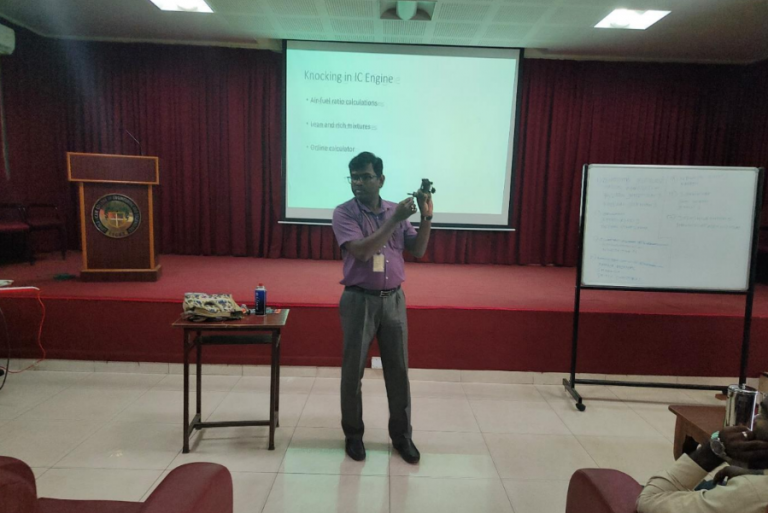
Mr. John Mathuram J, a distinguished professor renowned for his world-class teaching, has revolutionized the understanding of combustion phenomena in internal combustion engines. With innovative methodologies and tools tailored to each topic, Professor John Mathuram J brings theoretical concepts to life, fostering deeper comprehension among students.
For instance, in exploring the phenomenon of knocking in IC engines, Professor John Mathuram J utilizes XL Plot software, enabling students to analyze engine performance data and identify critical parameters influencing knocking. Through hands-on experimentation and data visualization, students gain insights into the complex dynamics of engine combustion.
In demonstrating flame temperature, Professor John Mathuram J employs a simple yet effective technique using wet paper, captivating students with visual representations of temperature variations. This interactive demonstration enhances understanding of flame characteristics and their implications in combustion processes.
Moreover, in calculating air-fuel ratios, Professor John Mathuram J integrates online program calculators alongside flame torch demonstrations, offering students practical insights into the intricacies of combustion chemistry. This holistic approach not only facilitates theoretical comprehension but also cultivates practical problem-solving skills essential for engineering applications.
Furthermore, Professor John Mathuram J elucidates combustion principles through flame torch and lighter demonstrations, immersing students in real-world scenarios to deepen their understanding of combustion behavior. His innovative teaching methodologies, coupled with hands-on experiences, empower students to excel in the dynamic field of internal combustion engines.
Under the mentorship of Professor John Mathuram J, students not only acquire theoretical knowledge but also develop critical thinking abilities and practical skills, preparing them for success in the ever-evolving engineering landscape.
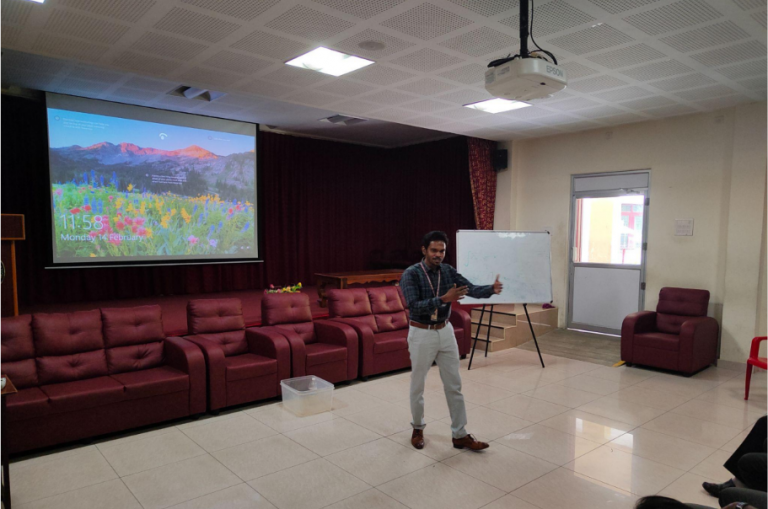
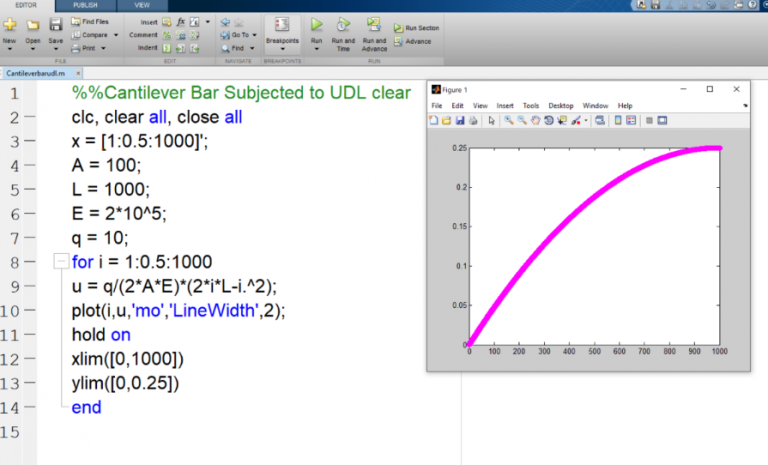
Mr. Regis X, an esteemed educator, has established himself as a leader in providing world-class teaching experiences in various engineering topics. With an innovative approach, he employs cutting-edge tools tailored to each subject, enriching student learning experiences.
For instance, in tackling Differential Equations, Mr. Regis X utilizes a combination of video lectures and MATLAB simulations. This dynamic approach not only enhances theoretical understanding but also provides practical applications, ensuring students grasp complex mathematical concepts effectively.
In teaching the derivation of General Differential Equations (GDE) for bars subjected to Uniformly Distributed Loads (UDL), Mr. Regis X adopts a traditional yet effective method using a whiteboard and marker. This simple yet engaging technique facilitates clear explanations, enabling students to comprehend fundamental principles with ease.
Furthermore, in exploring Axisymmetric Elements and demonstrating Hydrostatic Pressure, Mr. Regis X employs tangible props such as water bottles and tubs. By visualizing concepts in a real-world context, students gain a deeper understanding of theoretical principles, fostering a holistic learning experience.
Moreover, Mr. Regis X incorporates interactive quizzes into his teaching methodology, utilizing PowerPoint presentations to assess student comprehension and reinforce learning objectives. This approach promotes active engagement and aids in retention of key concepts.
Additionally, in teaching Numerical Integration, Mr. Regis X utilizes a traditional approach with a whiteboard and marker. Through step-by-step explanations and problem-solving demonstrations, students develop essential mathematical skills crucial for engineering applications.
Lastly, Mr. Regis X offers consultancy and research opportunities utilizing advanced software tools such as ANSYS and MATLAB. By engaging students in practical projects and research endeavors, he equips them with valuable hands-on experience and prepares them for real-world engineering challenges.
Under the guidance of Mr. Regis X, students not only acquire theoretical knowledge but also develop practical skills and critical thinking abilities essential for success in the field of engineering.
Future Directions
- To establish a research centre and promote patents
- To start a PG program in Thermal/ Design Engineering
- To promote consultancy work
- To provide industry level training in HVAC and Automobile
